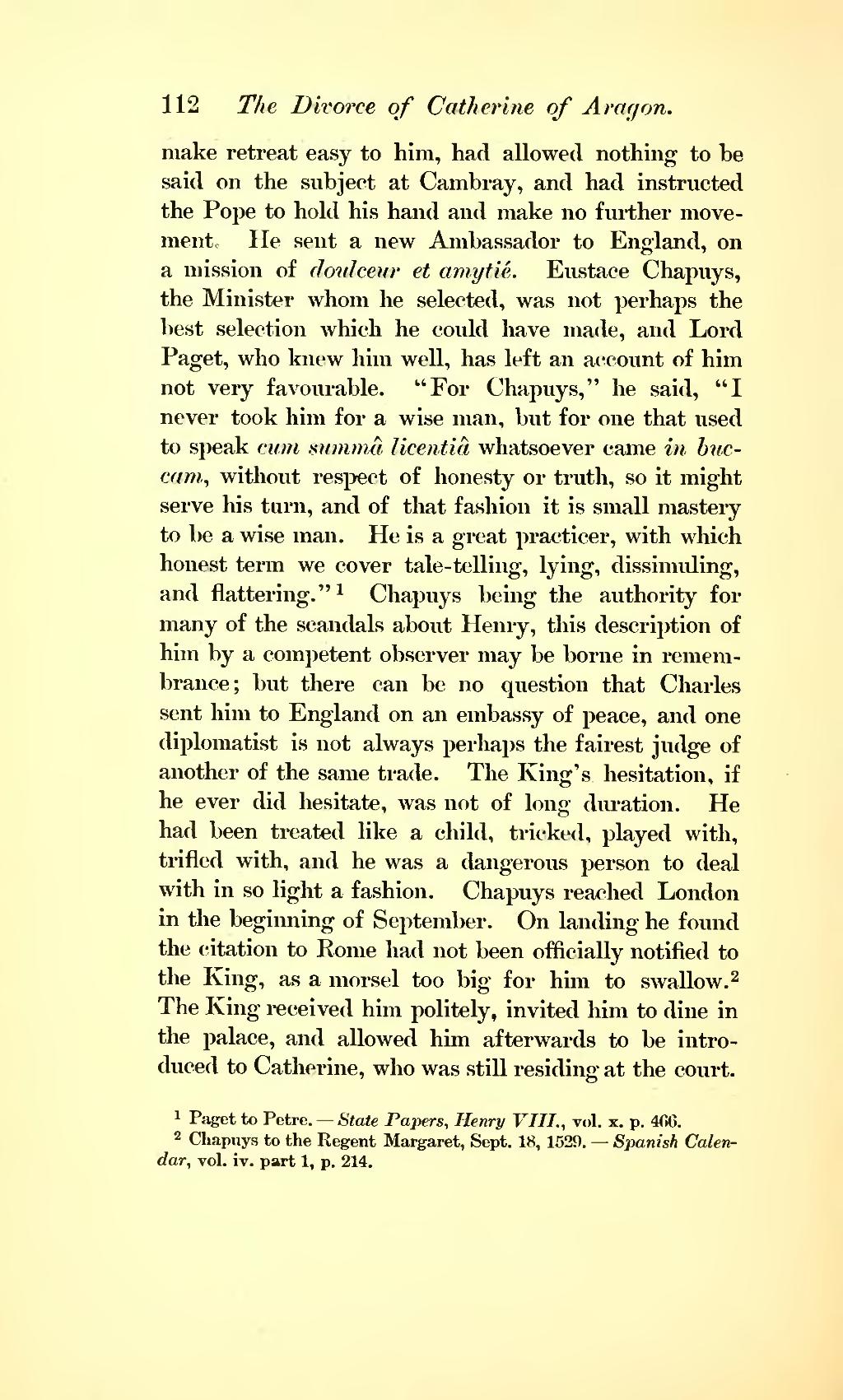make retreat easy to him, had allowed nothing to be said on the subject at Cambray, and had instructed the Pope to hold his hand and make no further movement. He sent a new Ambassador to England, on a mission of doulceur et amytié. Eustace Chapuys, the Minister whom he selected, was not perhaps the best selection which he could have made, and Lord Paget, who knew him well, has left an account of him not very favourable. "For Chapuys," he said, "I never took him for a wise man, but for one that used to speak cum summâ licentiâ whatsoever came in buccam, without respect of honesty or truth, so it might serve his turn, and of that fashion it is small mastery to be a wise man. He is a great practicer, with which honest term we cover tale-telling, lying, dissimuling, and flattering."[1] Chapuys being the authority for many of the scandals about Henry, this description of him by a competent observer may be borne in remembrance; but there can be no question that Charles sent him to England on an embassy of peace, and one diplomatist is not always perhaps the fairest judge of another of the same trade. The King's hesitation, if he ever did hesitate, was not of long duration. He had been treated like a child, tricked, played with, trifled with, and he was a dangerous person to deal with in so light a fashion. Chapuys reached London in the beginning of September. On landing he found the citation to Rome had not been officially notified to the King, as a morsel too big for him to swallow.[2] The King received him politely, invited him to dine in the palace, and allowed him afterwards to be introduced to Catherine, who was still residing at the court.
Page:Divorce of Catherine of Aragon.djvu/130
Appearance

